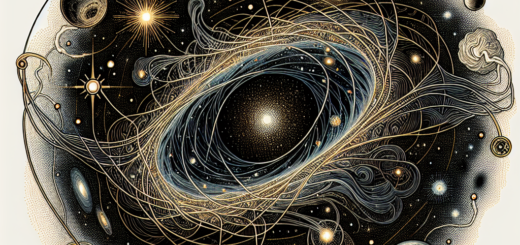The Fascinating World of Galactic Science: What We Know and What We’re Discovering
The universe is a vast and mysterious place, filled with countless wonders waiting to be discovered. One of the most fascinating areas of scientific study is galactic science, the study of galaxies and the vast regions of space that they inhabit. From the origins of the universe to the formation of stars and planets, scientists are constantly uncovering new insights into the workings of the cosmos.
One of the most important discoveries in galactic science is the Big Bang theory, which posits that the universe began as a singularity over 13 billion years ago and has been expanding ever since. This theory has been supported by a wealth of observational evidence, including the cosmic microwave background radiation, which is the leftover radiation from the Big Bang. By studying this radiation, scientists have been able to learn more about the early universe and how it evolved into the galaxies and stars we see today.
Another area of interest in galactic science is the study of black holes, mysterious objects with such strong gravitational fields that nothing, not even light, can escape from them. Black holes are thought to form when massive stars collapse at the end of their lives, creating a point of infinite density known as a singularity. By studying the effects of black holes on their surroundings, scientists have been able to learn more about the nature of gravity and the structure of spacetime.
In recent years, astronomers have also made exciting discoveries in the field of exoplanet research, the study of planets outside our solar system. By using advanced telescopes and techniques such as the transit method and radial velocity method, scientists have been able to detect thousands of exoplanets orbiting other stars. These discoveries have provided valuable insights into the diversity of planetary systems in the universe and the potential for finding habitable worlds beyond our own.
As technology continues to advance, scientists are able to explore the cosmos in greater detail than ever before. From the Hubble Space Telescope to the upcoming James Webb Space Telescope, these instruments have provided stunning images of distant galaxies and helped us to better understand the processes that shape the universe. With each new discovery, our understanding of the cosmos grows deeper, leading to new questions and avenues of exploration.
The field of galactic science is a constantly evolving and exciting area of research, with new discoveries being made on a regular basis. By studying galaxies, black holes, and exoplanets, scientists are able to unlock the secrets of the universe and gain a greater understanding of our place within it. As we continue to push the boundaries of our knowledge, the fascinating world of galactic science will continue to inspire and awe us with its beauty and complexity.













